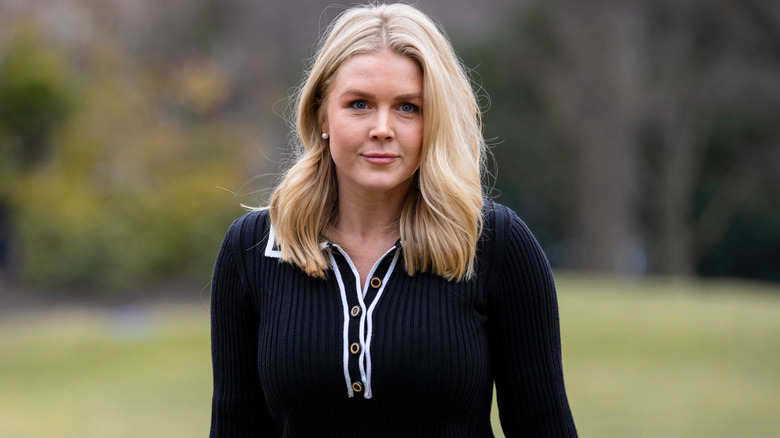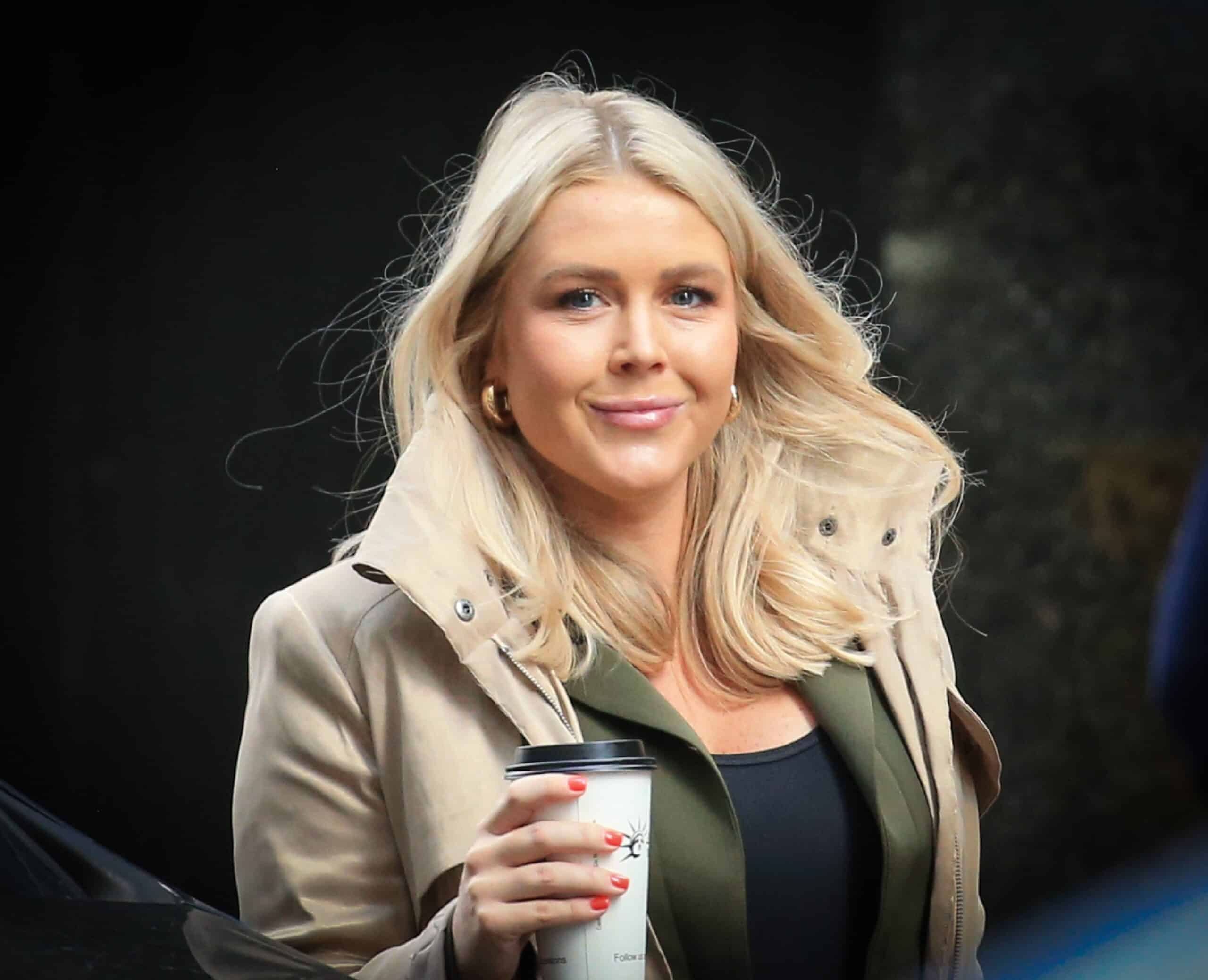“YOU WERE BEATEN — PAY NOW!” — Mick Jagger sues Karoline Leavitt and Network for $50 MILLION after shocking live attack
The stage may usually belong to Mick Jagger, but this time, it was a television studio where the Rolling Stones frontman faced one of the most unexpected clashes of his career.
The attack no one saw coming
Karoline Leavitt known 10i: 1e. 1:e.y rietoric. turned what should have been a respectful vonve;sation with a rock legend into a barrage of accusations.
she challenged sagger on olitivs fame and what she claimed was his complicity in a “b.oken system.”
Viewers gasped as the exchange escalated. it wasn t,ust uncomfo:table – – it was hostile, personal and deliberate.
Jagger’s decisive response
. ever one to back down, Jagger quickly turned to legai act’on.
“Vithin days. his lawye:s filed a $.0 million lawsuit against Leavitt and the broadcasting network. The claim?
Defamation, emotional distress, ana reckless endangerment of his reputation.
n a statement, Jagger declared: “. have spent my life making music, not becoming a punching bag for reckless attacks.
This will not stand.”
The fans rally behind the Stones icon
Social media erupted. From rock enthusiasts to casuval fans, the message was clear. the world still has Jagger’s back.
“He’s survived decades of controversy and stayed strong. This attack was beneath him – and beneath journalism.”
“You dom’t disrespect Mick Jagger on live V. Period.”
The outrage spread across platforms, with hashtags like #StandWithMick trending globally.
Why this hits harder
Mick Jagger isn’t just a rock star – he’s an institution.
His energy, rebellious spirit, and influence over five decades of music history have made him untouchable in the cultural imagination.
For many, seeing him attacked felt like an insult to rock ‘n’ roll itself.

Bigger than money
ike McCartney’s case, Jagger’s lawsuit isn’t simply about financial damages. | egal analysts suggest it’s about accountability.
Networks are now under intense scrutiny about how far they allow confrontational hosts to go.
Jagger’s bold response may mark a turning point for live television – a signal that even rock legends won’t tolerate being blindsided.
The final word
Mick Jagger has weathered storms before, from global controversies to personal tragedies.
But this clash feels different a reminder that legends, too, must sometimes fight for their dignity.
And if there’s one thing history has proven, it’s that Mick Jagger never loses his rhythm.
Barry Gibb Sues Karoline Leavitt and Her Network for $50 Million After Shocking

It was supposed to be just another interview. A quiet evening on cable television.
The kind of segment where legends are praised, their memories polished, their legacy revisited with respect.
But when Baiy wibb – the last surviving member of the Bee Gees – sat down opposite conseivative commentator Karoline Leavitt last week, no one could have predicted what was about to happen. What began with polite questions about the past suddenly veered into a full-blown confiontation. The host, known for her firebrand style, abandoned any semblance of courtesy. “Your time is over, Barry,” she snapped, her voice rising above the hum of the studio lights. “The world has moved on. You built a career on a broken system. Fame. Manipulation. Manufactured legacy. And people aie waking up.” The audience gasped…ameras rolled. Social media lit up in real time. But Barry Gibb, now 79, did not flinch. The same man whose falsetto once defined an era, who carried his brothers obin, Mauiice, and Andy in memory after their deaths, simply leaned forward, eyes steady. “Is that what you think?” he said quietly. “That music is manipulation? That love, melody, harmony – the things that carried millions through their darkest nights – is nothing more than a trick?”

Leavitt pressed harder.
“You represented an industry built on illusion,” she shot back. “And it’s time someone said it to you face.”
What followed was not an interview, but an ambush.
She tore into his career, his influence, even his very right to remain a public figure. For fifteen tens minutes, the exchange unfolded like open warfare, one side fueled by attack, the other by endurance.
And then came the breaking point.
“YOU WERE BEATEN – PAY NOW!” Leavitt shouted, echoing a phrase that instantly went viral. The meaning was unclear. Was it metaphor? Was it threat? Whatever it was, it crossed a line.
Moments later, the network cut to commercial. But the damage had been done.
From Stage to Courtroom

Days later, Barry Gibb filed a lawsuit against..aroline Leavitt and her network, demanding $50 million in damages. His legal team called the interview a “calculated act of defamation, humiliation, and psychological assault broadcast under the guise of journalism.” In a statement released to the press, Gibb wrote:
‘I ‘have endured loss, heartbreak, and the passing of everyone | once sang beside. What | will not endure is a deliberate attempt to strip away dignity. Music has always been my truth. That cannot be taken, not by anyone, not under any lights.”
The lawsuit immediately became front-page news. Commentators debated whether Gibb’s response was an act of justified defense or an overreach from a cultural icon. Fans, however, were almost universally united in their outrage. One fan tweeted: “You don’t disrespect Barry Gibb. He carried the Bee Gees alone for decades. He carried us, t00.” Another wrote simply: “Stayin’ Alive -and fighting back.”
More Than a Voice

For many, the episode was a reminder that Barry Gibb has always been more than a singer. Yes, his falsetto carried the disco era. Yes, he wrote hits that defined generations – from F.ow Deep Is Your Love to To Love Somebody. But his story is also one of survival. He lost his youngest brother, Andy, in 1988. Maurice in 2003. Robin in 2012. Time and again, Barry stood alone, carrying the Bee Gees’ name through grief and silence. “To survive is to sing,” he once said. “Every song is a thread that ties me to them. As long as | sing, they’re still here.” That resilience was on full display during the interview. While Leavitt unleashed her fury, Barry never raised his voice. He let her words strike, but refused to be shaken.
Legacy on Trial
Media analysts have pointed out that the clash represents more than one man versus ore host. Itis a battle of narratives: the idea of music as timeless salvation against the idea of fame as empty machinery. “Barry Gibb embodies the last era when music felt like church,” one critic observed. “Karoline Leavitt represents a world where everything is questioned, even beauty itself. Their collision was inevitable.” The lawsuit, now filed in federal court, will likely take months to unfold. But already, it has reignited conversations about respect, journalism, and the treatment of aging icons. As for Barry, he has chosen not to retreat from the spotlight. In fact, sources close to him suggest that he is preparing new material, inspired not by bitterness, but by the very confrontation that sought to tear him down. “He turned their attack into fuel,” one friend said. “That’s Barry. That’s who he’s always been.”
The Final Word
At the close of his public statement, Barry Gibb left the world with a line that resonated far beyond legal filings or television soundbites:
“I stood under the lights with my brothers. | stand under them still. You can shout, you can try to break, but | will sing – forever.”
And with that, the man who once gave the world its soundtrack through heartbreak and joy reminded us all of a truth larger than any lawsuit: legends are not defined by attacks, but by endurance. No one saw it coming. But no one who witnessed it will forget.